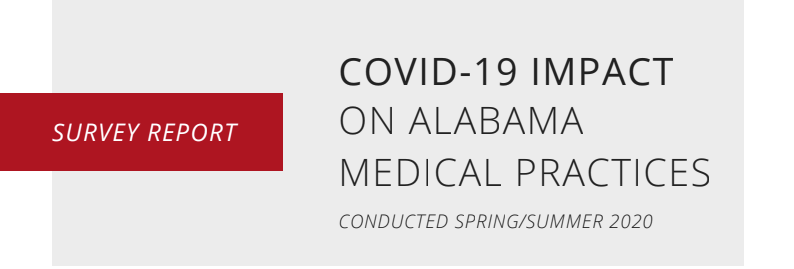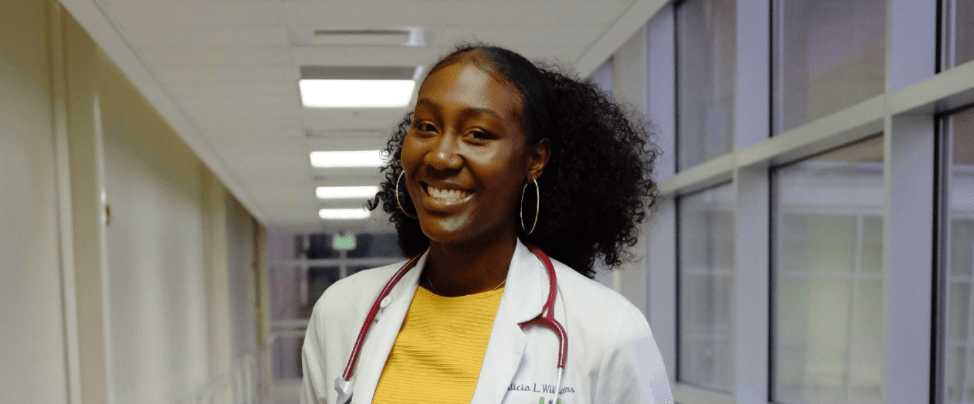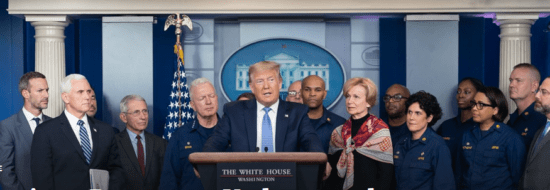Category: Members
-

Five Things to Consider When Selling Your Practice to a Private Equity Firm
By Howard Bogard, Burr Forman A growing number of physicians are selling their medical practices to private equity firms in order to “monetize” their practice, as well as to access capital and obtain operational efficiencies. In the Southeast, we are seeing consistent private equity activity in the specialties of anesthesiology, gastroenterology, dermatology, ophthalmology, oncology, ENT,…
-

Physicians Perspective: Dr. Chris Adams Talks Telemedicine
Adversity and necessity mandate invention. During the COVID-19 pandemic, telemedicine has been transformed almost overnight into a necessary medical tool for remaining connected to our patients. Without warning, physicians suddenly found themselves in the position of adding communication technologies, learning regulatory requirements, and adapting to an entirely new way of interacting with patients, sometimes reinventing…
-

Op-Ed: Alabama Medical Practices Hit Hard by COVID-19, Survey Finds
By: John S. Meigs, Jr., MD, President Medical Association of the State of Alabama In a span of just a few months, the coronavirus pandemic has changed the way we function as a society and has fundamentally altered our healthcare delivery system. It has exacerbated weaknesses in the infrastructure of health care and exposed…
-

Underwood Minority Scholarship Awarded
The Underwood Minority Scholarship Award is named for long-time Montgomery physician and the Medical Association’s 152nd President Jefferson Underwood III, M.D. Dr. Underwood became the first African-American male to serve as President of the Association in 2018-2019. The Underwood Minority Scholarship Award is for African-American individuals underrepresented in Alabama’s medical schools and the state’s physician…
-

Advocacy Efforts During COVID-19
The spread of COVID-19 has affected nearly all aspects of our daily lives. For the Medical Association’s efforts in protecting physicians and patients, this was also true. Nonetheless, between March 13 (when Gov. Ivey issued the COVID-19 state of emergency) and mid-May, our advocacy work continued in full-force. Executive Actions & Proposals Worked with various…
-

Honoring Dr. Jefferson Underwood
Long-time Montgomery physician and Medical Association member Jefferson Underwood III, M.D., was recently honored with two distinct awards. The Alabama Chapter American College of Physicians recognized Jefferson Underwood III, MD, FACP, as the 2020 Laureate Award recipient and the Medical Association of the State of Alabama presented Dr. Underwood with the 2020 Samuel Buford Word…
-

Alabama Department of Public Health Advises Health Care Providers in Use of COVID-19 Tests not Approved by the United States Food and Drug Administration
The Alabama Department of Public Health (ADPH) supports health care workers’ efforts to care for Alabama citizens during this COVID-19 health crisis. As this public health emergency evolves, there is need for increased availability of SARS CoV-2 diagnostic testing. In response to this demand, the United States Food and Drug Administration (FDA) released policies to…
-

Chronic Care Management in the Coronavirus Pandemic
Article contributed by: Tammie Lunceford, CMPE CPC with Warren Averett Chronic Care Management Expands Care Several years ago, the Center for Medicare and Medicaid Services released Chronic Care Management to assist in improving patient outcomes, extend care, and improve quality in chronic illness. The initial chronic care code, 99490 allowed for 20 minutes of non-face…
-

Charting & Documentation During the Coronavirus COVID-19 Pandemic
The world’s memory of this virus will be different when lawsuits are filed two years from now and juries try the cases two to three years after that. The acuteness of the issues, the confusion, the limited resources and the changing daily directives will not be remembered in any meaningful detail. Accordingly, the Risk Management…
-

Families First Coronavirus Response Act (HR6201) Summary
Last night President Trump signed what is being called the second coronavirus stimulus bill. It provides for free coronavirus screening, $1 billion in additional unemployment insurance funding to all states, a bump in Medicaid FMAP, $1 billion in food aid, and two provisions to provide paid sick leave to employees. Emergency Paid Sick Leave This…